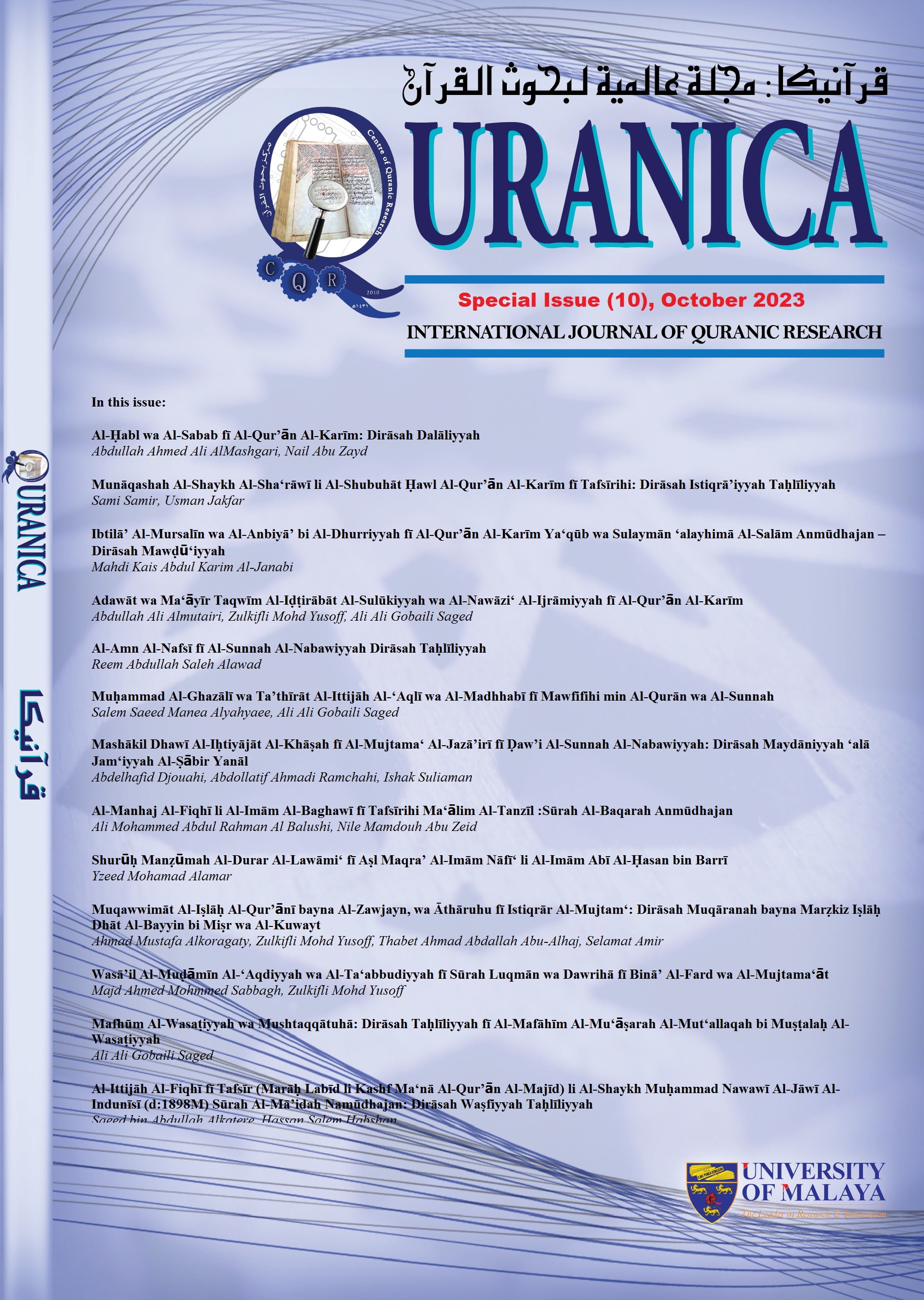Asrār Al-Tawassuṭ Al-Lafẓī wa Al-Tarkībī fī Al-Qur’ān Al-Karīm
Main Article Content
Abstract
This study addresses the secrets of verbal and structural interposition in the Holy Quran. The researcher explains the definition of secrets and interposition literally and technically, and the relation between the two terms and verbal and structural interposition, the concept of interposition, the specific context regulator, its limits, its concept, its importance, the relation of semantics to the subject of the study, and the meanings of interposition. Then he classifies verbal interposition in the Quran into noun interposition and verb interposition. Noun interposition is then classified into nominative, accusative and genitive, and verb interposition into past, present and imperative. Further, he classifies the structural interposition in the Quran (Quranic sentence interposition) into nominal phrase and verb phrase. It is consequently subclassified into nominal phrase interposition between two nominal phrases and two verb phrases, then verb phrase interposition between two nominal phrases and two verb phrases. He then quotes the verses (Ayat) including interposition in Surahs (Chapters), parts, as well as interposition in the openings of Chapters, interposition related to pausing within verses, narrative interposition (Quranic narrative), and lastly thematic and general interposition in the Quranic verses. In this study, the researcher adopts the inductive and analytical approaches by quoting some Quranic verses that indicate interposition in nouns, verbs, sentences, stories or themes. Therefore, he pursues old and contemporary exegeses to quote what they stated on the subject matter, then, after quoting all the exegetes’ opinions, he concludes every quoted verse with the researcher’s own opinion on such kind of interposition.
Downloads
Article Details
Disclaimer
QURANICA makes every effort to ensure the accuracy of all its contents. However, opinions, discussions, views and recommendations are expressed in this journal do not necessarily reflect the official policy of QURANICA or views of its editors or publishers. Therefore, QURANICA and its publishers will not be liable for any controversy may be arisen. The journal reserves the right, at its sole discretion, to change its terms and conditions of publications.
Copyright
It is a condition of publication that manuscript submitted to the journal have not been published, accepted for publication, nor simultaneously submitted for publication elsewhere. By submitting a manuscript, the author(s) agrees that copyright for the article is transferred to the publisher, if and when the manuscript is accepted for publication.
